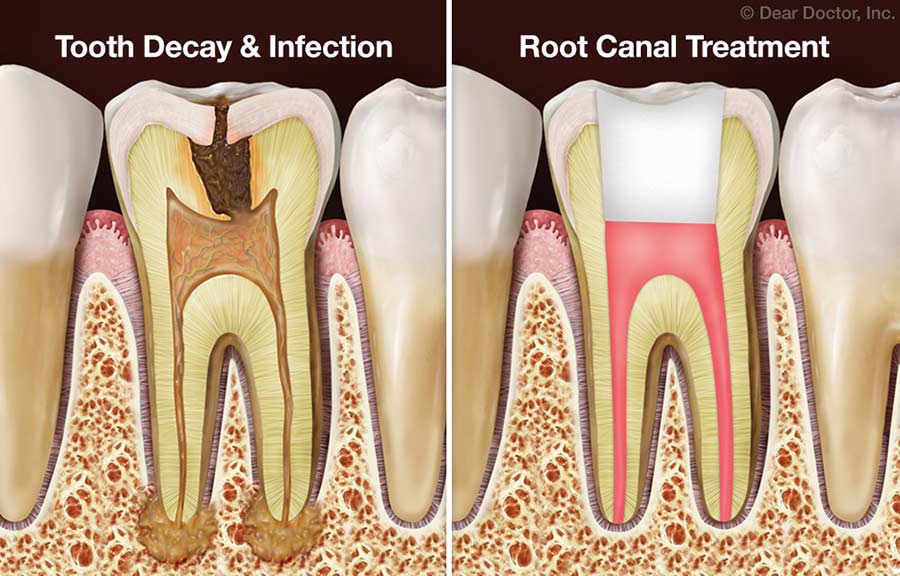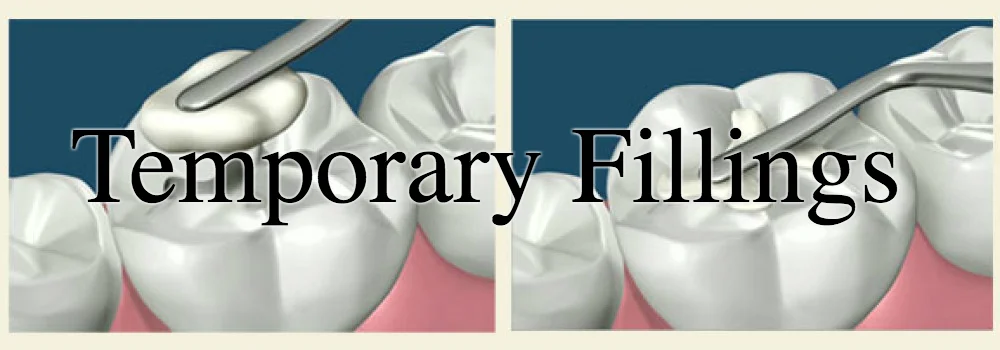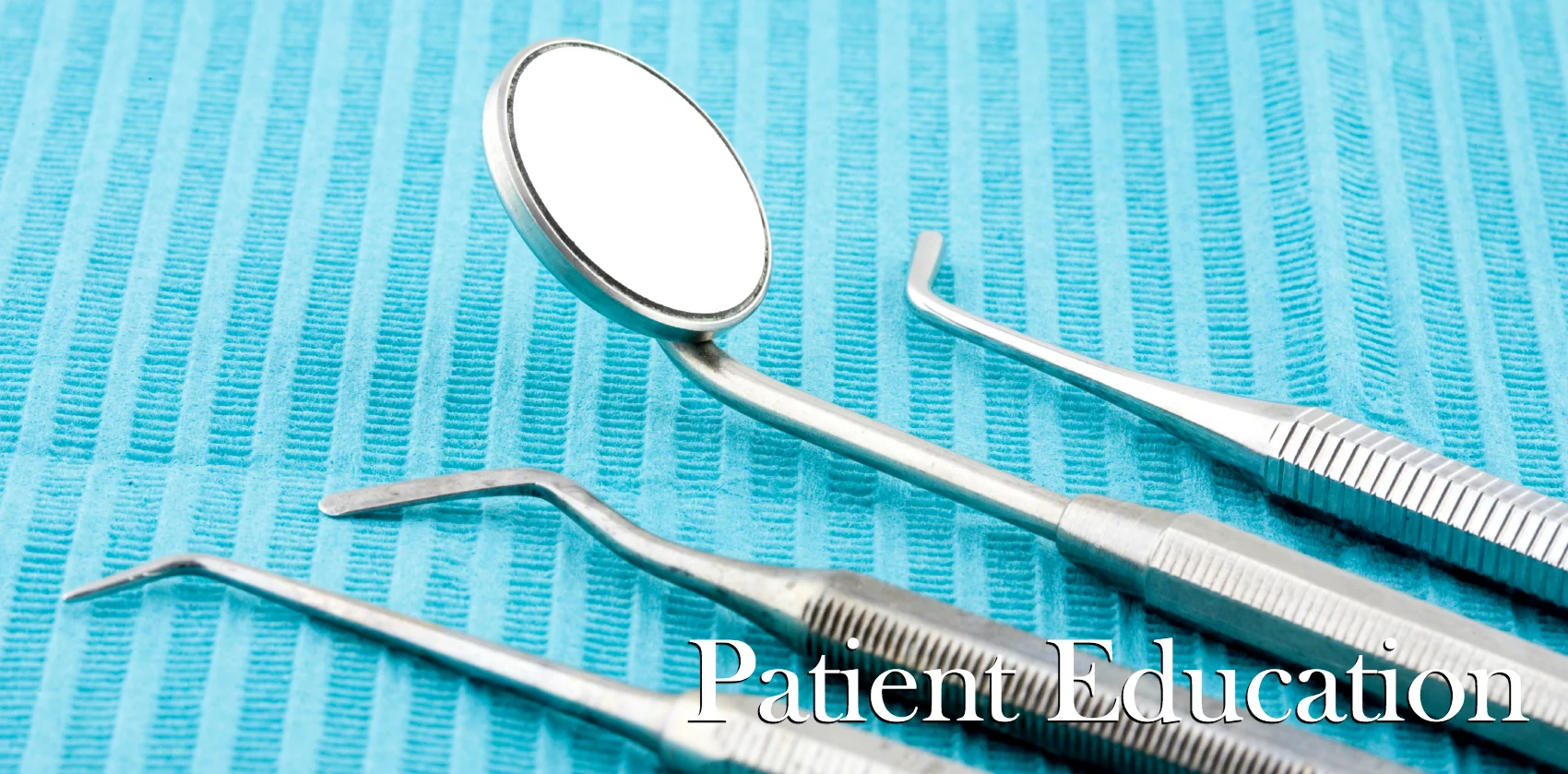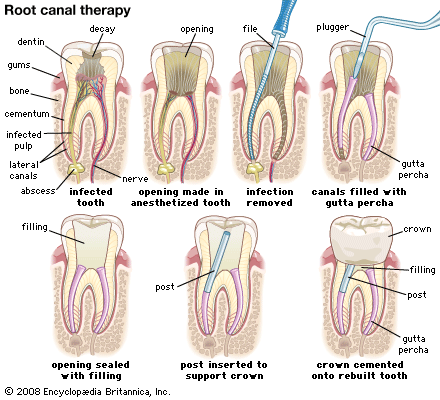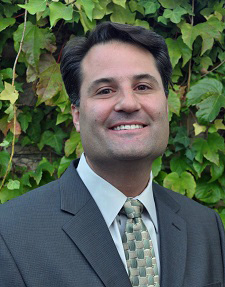Has a dentist ever looked at an x-ray of your teeth and recommended a root canal? You probably know that root canals are performed to remove aggravated (and painful) tooth nerves. Why would a dentist want to do this procedure on a tooth that has never bothered you? The truth is that root canals are often used to protect teeth with "dead" nerves from future pain and infection. Take a look!
A root canal is a dental procedure where the nerve of the tooth is removed and the resulting empty nerve canal is filled with a sealing material. They are performed on teeth with some type of irreversible nerve damage. This typically stems from bacteria, trauma or deep/extensive dental work. Patients may complain of a painful tooth that throbs or has an exaggerated reaction to cold foods/drinks. These can be clues that the nerve has become so severely agitated that it will eventually wither out and die. Conversely, a patient can indicate that the gums around the tooth are swollen, the tooth is sensitive to biting or that there is a bump or pimple on the gums above a tooth. These types of findings suggest the nerve in the tooth has already died, and is now fueling a localized bacterial infection called an abscess. Either way, these types of teeth will eventually need root canals to solve their issues.
Why might you need a root canal on a tooth that has never bothered you? A certain portion of the population will have the nerve in a tooth die in response to bacteria or trauma without pain or swelling. These teeth are usually discovered incidentally at a dental exam by visualizing an abscess on an x-ray. In most instances, this does not pose an emergency or cause for immediate concern. However, leaving the problem long term can lead to swelling, pain or the spread of infection.
Dental treatment recommendations can be difficult to understand, particularly when they involve root canals, crowns, implants or other complex procedures. At Thousand Oaks Family Dentistry, we are here to walk you through any difficult or confusing dental situations. If you would like to know more about root canals, crowns or types of dental plain, please give our office a call!



